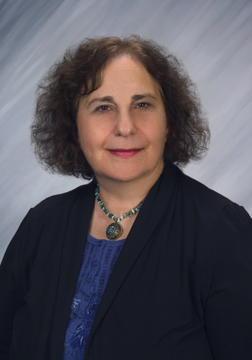For Dr. Donna Poppendieck, a mental and holistic health expert, losing her adopted daughter to toxic prescription drug medications changed everything.

“In my early 40 years, I reached a crossroad. My health was going downhill after I lost my adopted daughter to toxic prescription medications. Her loss took a toll on my physical, emotional and cognitive health,” Dr. Poppendieck said.
Shortly after her daughter’s passing, Dr. Poppendieck or “Dr. P” (that’s what her students call her) was diagnosed with Essential Thrombocythemia, an uncommon disorder that causes your body’s platelet count to be too high. Symptoms of essential thrombocythemia include fatigue, lightheadedness, headaches and vision problems. The condition also increases your risk of blood clots. Often essential thrombocythemia is accompanied by Sjoegren’s Syndrome and Rheumatoid Arthritis, according to a leading medical source. Dr. P had symptoms of these two autoimmune disorders as well, but mostly the Sjoegren’s symptoms were prominent.
Dr. P was placed on oral chemotherapy to help manage her condition. But over time, the chemotherapy became so difficult to endure that she started looking for alternative ways to manage her sickness. So, Dr. P turned to holistic therapies and treatment to address her chronic health conditions.
Dr. P. says that immediately after her first holistic health treatment, her platelets flatlined. And that’s when she became interested in holistic health as an alternative to modern medicine. Dr. P began a slow and steady healing process and found she could stop oral chemo altogether. “It took almost two years to gather the knowledge, reflect, and self-educate to completely get off oral chemo. Changing my diet and learning how to use my supplements smarter has helped me stay off of chemo,” she said, cautioning that no one should change their medical treatment plan without first consulting with their health care provider.
Now, Dr. P uses her educational background in holistic health and therapies to help adults and children manage mental and physical wellness to treat chronic medical conditions ranging from ADHD and addiction to managing stress, personal loss and depression.
What Is Holistic Health?
Holistic health is a comprehensive and personalized way of thinking about your wellness. In holistic health, you treat the entire person by providing for their physical, mental, spiritual, and social needs. It’s based on a deep understanding that these four aspects of your life affect your overall well-being. Dr. P says, unlike conventional medicine, which uses a symptomatic approach, holistic health is about helping your body do what it is already programmed to do – only better.
“In mental and physical health, we classify and diagnose by symptoms. But in holistic health, we don’t go after symptoms alone. Doctors who take a holistic approach don’t just ask you about your symptoms. They ask about your overall health and your life, so they can make personalized recommendations to improve your wellness,” she added. Dr. P says holistic health care involves making lifestyle changes such as finding a better way to eat, adopting new habits and identifying the right supplements that work for your body. Here are five tips for holistic health from Dr. P.

1. Stay hydrated. Hydration Is Essential To Holistic Health
Fresh, clean water with electrolytes is one of the critical ingredients to mental and physical health. It’s hard to overlook the simple fact that nearly 70% of your body is water. Your brain, bloodstream, digestion and immunity are all a part of an intricate system that requires a proper balance of electrolytes and minerals that promote healthy cellular function.
Dehydration caused by medications, chemotherapy and medical conditions like Sjogren’s Syndrome, Rheumatoid Arthritis and POTs and other autoimmune diseases affects your mental and physical wellness. “It’s challenging for my body to handle the fluid levels. I’m continually running dehydrated and dry. Dry eyes have been one of the most challenging symptoms to manage, “Dr. P said.
“I know that when my body is working better with hydration, I move better. My health feels more vital and robust. My mind is right; my mood is up and keeps me moving physiologically. Hydration helps me stay active and make better choices, remain mentally alert,” Dr. P said. “These are huge issues for people who are of my age,” she added. “I keep Hydrus in every water bottle around me. Hydrus has helped with hydration in my dry eyes and my overall body. After experimenting with my hydration, I have learned that I need twice the recommended amount because my symptoms are that extreme,” Dr. P said.

2. Experiment With Your Diet and Nutrition
According to Dr. P, a low to no anti-inflammatory starch diet with non-starchy vegetables and clean proteins has helped manage her autoimmune conditions. But Dr. P says that you need to experiment with your diet. “For me going to a low carb – higher protein diet has reduced inflammation. Some people go totally vegan, and it works for them. You experiment with your body and see what works and what doesn’t,” Dr. P said. Dr. P recommends choosing an eating approach that works for you and adding plenty of fresh produce. It is also critical to stay away from sugars and most fruits because they can have a lot of sugar and act inflammatory, she says. Low-sugar fruits like berries are okay.
3. Get Genetic Testing
Dr. P recommends getting a DNA SNP lab test that can tell you what supplements will neutralize expression of your adverse genetic combinations and seeing a competent holistic health practitioner who can supervise your holistic health plan. Teamwork among professionals often produces an improved health outcome. “We each have a unique genetic makeup. Our genes have off/on switches, that can go back on again if you aren’t making the right lifestyle choices. That’s why holistic therapy can result in a more powerful effect than the symptom-based approach used by modern medicine today,” Dr. P said.
4 Mental Health Counseling
An essential component of holistic health therapy is working with the mind to manage mood and emotions better. Dehydration or maintaining a dehydrated state will result in irritation, headaches, and even influences your mood. For this reason, hydration is an essential part of holistic therapy. Dr. P says that while drinking and eating things that will help you provide your body with the right nutrients to function optimally, it is also essential to work through your emotions. “What many people don’t realize is that trapped emotions interact physically with different parts of your body,” said Dr. P.

5. Mindfulness & Spirituality
A key component of holistic therapy is spiritual wellness. Spiritual wellness is about a connection you feel with something greater than yourself. It could be a higher power, a religion or your sense of meaning, purpose, values, or belief systems. Research suggests that a therapist’s inclusion of an individual’s spiritual beliefs can assist in their healing process. Spirituality promotes internal awareness and happiness and can play a large part in their emotional and physical advancement. Dr. P says mindfulness and spirituality can be anything that makes you feel connected and joyous. “It could be meditation, yoga, acupuncture, music, art, massage therapy, carpentry, golf etc. It’s whatever moves you,” she said.